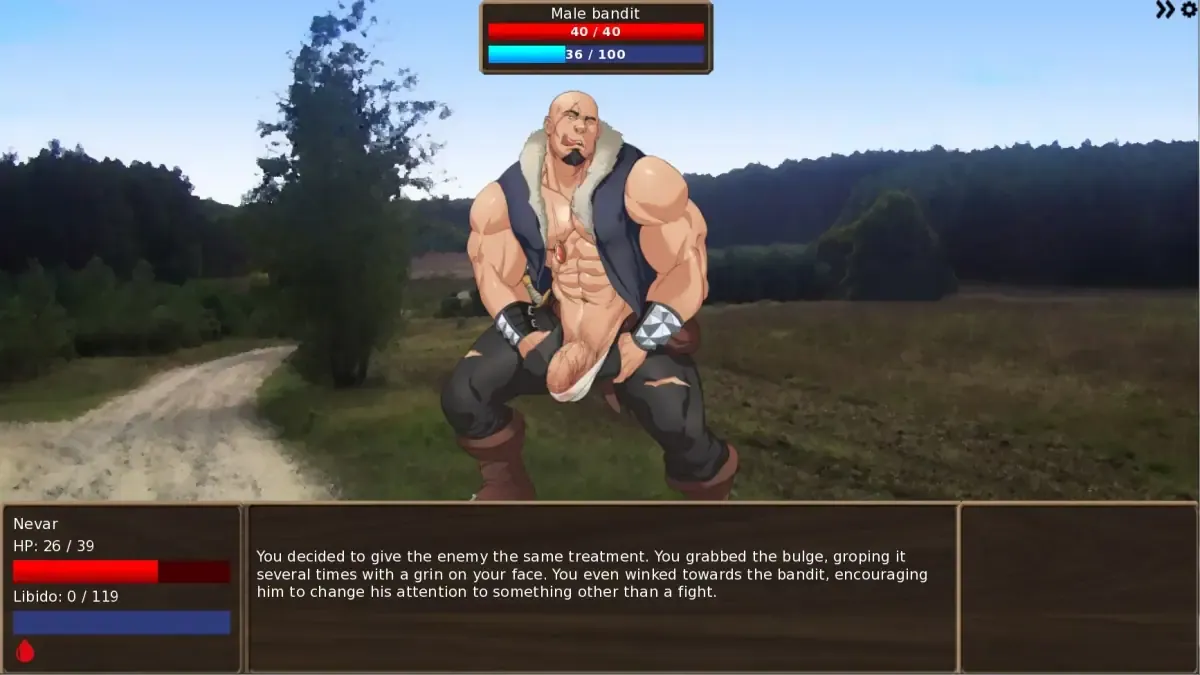
Freeloading Family
Play Freeloading Family
Freeloading Family review
Master every event, character interaction, and progression system in this simulation experience
Freeloading Family is a complex simulation game that challenges players to navigate intricate character relationships, unlock hidden events, and master the game’s progression system. Whether you’re new to the experience or looking to complete every event, understanding the mechanics, character dynamics, and event triggers is essential. This guide provides everything you need to know about progressing through the game, discovering all character interactions, and experiencing everything this simulation has to offer. From initial setup to advanced event completion, we’ll walk you through the strategies and secrets that make mastering Freeloading Family possible.
Understanding Game Mechanics and Core Systems
How the Progression System Works
Let me tell you about the first time I truly understood the Freeloading Family progression system 🎮. I’d been playing for hours, just doing whatever felt right, and suddenly I hit a wall. Nothing new was happening. My character was stuck in a loop of the same few activities, and I had no idea why. It felt like the game had broken. That’s when I realized I wasn’t playing a simple life sim; I was navigating a complex web of interconnected triggers. The core of this game mechanics guide is helping you avoid that exact frustration.
The progression in Freeloading Family isn’t about grinding for experience points. It’s a delicate dance of cause and effect. Think of it as a giant, branching story where your choices are the chapters. The game’s internal clock is always ticking ⏰, and every action you take—or don’t take—has repercussions. The primary goal is to advance your standing within the family and unlock new story arcs, but the path is never linear. You might focus on one character, only to discover that a completely different character’s storyline held the key to a major event you were trying to access.
So, how do you actually move forward? It all comes down to understanding event triggers and prerequisites. The game is built on a foundation of “if-then” statements. If you have a Level 3 relationship with Uncle Bob, and you’ve discovered the “Secret Snack Stash” in the kitchen, and it’s a Tuesday after 7 PM, then you can trigger the “Midnight Munchies” event. Miss one piece of that puzzle, and the event remains locked away. This is the heart of the Freeloading Family progression system—a cascading series of unlocked content based on your meticulous (or chaotic) choices.
Pro Tip: Keep a physical or digital journal. Note down strange dialogue, unusual item locations, and character moods. You’ll start to see the patterns the developers carefully wove into the game world.
The game is constantly tracking your decisions in a hidden “karma” or reputation score. Helping your sister with her homework might slightly increase your “Helpful” stat, which could be a hidden prerequisite for a later event where she vouches for you with a strict parent. Conversely, consistently stealing food from the fridge might lock you out of peaceful family dinners. This invisible ledger is why two playthroughs can feel like completely different games.
Here’s the beautiful part: learning how to unlock events is a game in itself. You aren’t just given a quest log. You have to be a detective 🕵️, paying attention to environmental clues and off-hand comments from family members. A character might mention they’re stressed about a work project. That’s not just flavor text—it’s a hint! Visiting them in the home office during the evening for the next three days might trigger a supportive conversation that deepens your bond and unlocks their personal questline.
Time and Location-Based Events
Remember that wall I hit? It was entirely because I ignored the clock and the map 🗺️. Time-based events and location-based interactions are the twin engines that drive the narrative forward in Freeloading Family. The game world operates on a tight, repeating schedule. Characters have jobs, hobbies, and favorite spots, and if you want to interact with them in a meaningful way, you need to be in the right place at the right time.
Let’s break down time first. The in-game day is divided into blocks: Morning, Afternoon, Evening, and Late Night. Certain events are hard-locked to these periods. You’ll never find Dad watching his favorite sports game in the morning, and you’ll never trigger a “Surprise Breakfast” event in the evening. The day of the week also matters tremendously. Weekends often feature unique, one-time-only events that can significantly alter relationship dynamics. I learned this the hard way when I slept in on a Saturday and missed the “Family Garage Clean-Out,” which was the only way to find a key item needed to fix the broken car later.
Now, let’s talk about space. The house and its immediate surroundings are more than just a backdrop; they are a stage for specific location-based interactions. The living room might be the domain for family conversations, while the backyard is where you can have private, heartfelt talks. The kitchen is a hub of activity, but its function changes depending on the time of day. You might have a casual chat with a sibling while grabbing a morning coffee, but try to have the same chat during the dinner preparation rush, and you’ll be brushed off.
The magic happens when time and location intersect. This is where the most significant events are born. To help you visualize this, here is a reference table for some major event categories.
| Event Category | Primary Location | Optimal Time | Key Prerequisites |
|---|---|---|---|
| Family Meetings | Living Room | Sunday Evening | Relationship > Lvl 2 with both parents; No major conflicts ongoing |
| Heart-to-Heart Talks | Backyard Bench | Clear Evenings | Relationship Lvl 4+; Character must be in a “Pensive” mood |
| Skill Learning | Garage Workshop | Saturday Afternoon | Discovered “Old Toolbox”; Helped the relevant character 3+ times |
| Secret Revelations | Attic | Rainy Afternoons | Found the Hidden Key; Relationship Lvl 5 with any one family member |
⚠️ The most common mistake is trying to force an interaction. If a character is clearly busy (indicated by their specific animation, like typing on a laptop or cooking intensely), your attempts to talk will be short and unproductive. This is a core part of the game mechanics guide: patience and observation are your greatest skills. Watch the family’s rhythms for a few in-game days. You’ll learn that Mom is most approachable after her morning coffee ☕, and your teenage brother is only willing to talk during late-night gaming sessions.
Character Relationship Mechanics
If the progression system is the skeleton of Freeloading Family, then the character relationship system is its beating heart ❤️. This isn’t a simple like/dislike meter. It’s a dynamic, multi-layered simulation of family dynamics, complete with memories, moods, and shifting alliances. My biggest “aha!” moment was realizing that my actions with one family member would subtly influence my standing with another.
Building relationships is a slow, deliberate process. You can’t just spam a character with gifts or compliments. The system is designed to feel authentic. Each character has a set of core “Values,” such as Honesty, Humor, or Ambition. Your actions are constantly being measured against these values. For example, taking the blame for a broken vase (demonstrating Honesty and Family Loyalty) will earn you significant points with a parent who values those traits, but might be seen as foolish by a more pragmatic sibling.
The character relationship system uses a hidden level scale, typically from 1 to 10. However, you don’t see a number. Instead, you gauge your progress through the quality of dialogue, the availability of new interaction options, and the characters’ body language. At Level 1, conversations are short and generic. By Level 5, they’re sharing personal stories and secrets. By Level 8 or 9, they may actively seek you out for advice or help, unlocking their deepest story arcs.
So, what actually moves the needle? It’s a combination of factors:
- Meaningful Conversations: Choosing dialogue options that align with a character’s values. Listening without interrupting during their personal stories.
- Fulfilling Requests: When a character asks for a favor, it’s a golden opportunity. It shows you’re paying attention and are willing to help.
- Shared Activities: Playing video games with your brother, gardening with your mom, or watching a movie with the whole family. These activities build rapport over time.
- Mood Considerations: A character’s mood is a temporary state (Happy, Stressed, Tired, Angry) that affects all interactions. Trying to have a deep conversation with someone who is Angry is a recipe for disaster 😠. Sometimes, the best action is to give them space.
Personal Insight: I once spent an entire playthrough trying to be the “perfect” child, always agreeing and never causing trouble. Surprisingly, this led to some of the most shallow relationships. The family saw me as pleasant but uninteresting. It was only when I started expressing my own (virtual) opinions and engaging in playful arguments that the relationships felt real and deep. Don’t be afraid to disagree sometimes!
The most advanced aspect of how to unlock events is understanding the web of interconnected relationships. Your bond with Mom might be the prerequisite for her giving you a part-time job, but your standing with Dad might determine if he lends you the car to get there. Furthermore, certain major family events require a minimum average relationship level across the entire household. If you’ve been ignoring your little sister, her tantrum at the wrong moment could single-handedly derail a planned vacation—a classic example of the Freeloading Family progression system at its most intricate.
Mastering these core systems turns Freeloading Family from a confusing experiment into a deeply rewarding storytelling experience. By understanding the Freeloading Family progression system, respecting the flow of time-based events, leveraging location-based interactions, and nurturing the complex character relationship system, you’ll stop reacting to the game world and start shaping it. You’ll know exactly how to unlock events by meeting their event triggers and prerequisites, transforming your gameplay from a series of random attempts into a deliberate and successful journey through family life. Now go on, get out there, and become the ultimate freeloading prodigy! 🏆
Mastering Freeloading Family requires understanding both the technical mechanics and the narrative depth of its character interactions. By familiarizing yourself with the progression system, recognizing event triggers, and following strategic walkthroughs, you can unlock the full scope of what the game offers. Whether you’re pursuing specific character storylines or aiming for complete event coverage, the strategies outlined in this guide provide the foundation for success. Take your time exploring different interaction paths, pay attention to timing and location requirements, and don’t hesitate to revisit earlier content to ensure you haven’t missed any opportunities. The game rewards careful observation and methodical progression, making each playthrough a unique experience as you discover new layers of character development and hidden interactions.











